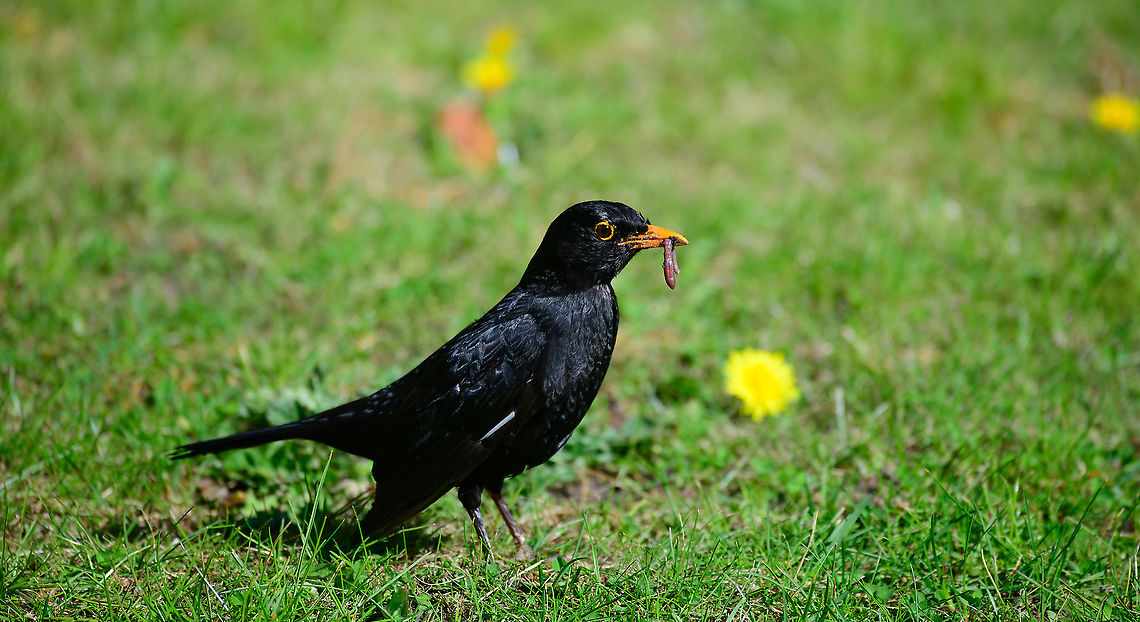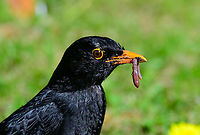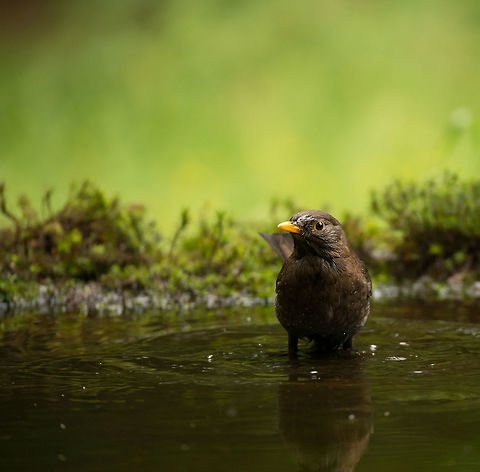
Common Blackbird - male, Heesch, Netherlands
One of the most common birds to attend our garden. What is unusual this time is that Henriette and I have been at home full time for several weeks now, so we get to experience their most critical life cycle up close and in great detail. We've build an intimate relationship with this bird.
Here we are basically at step 2 already. The 2 weeks prior, this bird used our garden for nest material, coming and going non-stop, hundreds of times per day. On this photo, we're at the food collection phase, so the young ones are born.
In the nesting phase, they dramatically change in behavior. They lose most sense of fear and even become cocky. For example, this one even comes into our house to steal our cat's food, if we leave the door open. It's also impatiently looking at me to turn on the water sprayer, so that the rain worms come to the surface.
It still very much freaks out when it sees our cat, but not when it sees me. You can build trust with some birds with a zero-interest approach. Sit still, be still, no sudden movements and when you move, move in the opposite direction or parallel to the bird, never directly at it. They will learn that you're not a threat.


The Common Blackbird is a species of true thrush. It is also called Eurasian Blackbird, or simply Blackbird, where this does not lead to confusion with a similar-looking local species. It breeds in Europe, Asia, and North Africa, and has been introduced to Australia and New Zealand.

comments (10)
Posted 5 years ago
"Die kleine merel is mijn vriend, hij heeft mijn vriendschap echt verdiend"
Posted 5 years ago
Oh oh Blackbird, with your shining yellow beak.
You'd tell me why it's yellow, if you could only speak.
"I tell you why it's yellow, though I can only sing.
I dipped it in a crocus on the first day of spring." Posted 5 years ago
That is exactly what happened today! I looked into a garden and saw a few unfamiliar guests, 3 of them. They looked like a female Merel yet fluffy. And large. Larger than their parents. Turns out it indeed 3 youngsters. With this daddy being very stressed feeding them. Even got the exact shot where it deposits food in one of the greedy mouths. It was total fun and hilarious. Every time dad found enough food he has to look where they went to this time, as they're completely chaotic. Posted 5 years ago